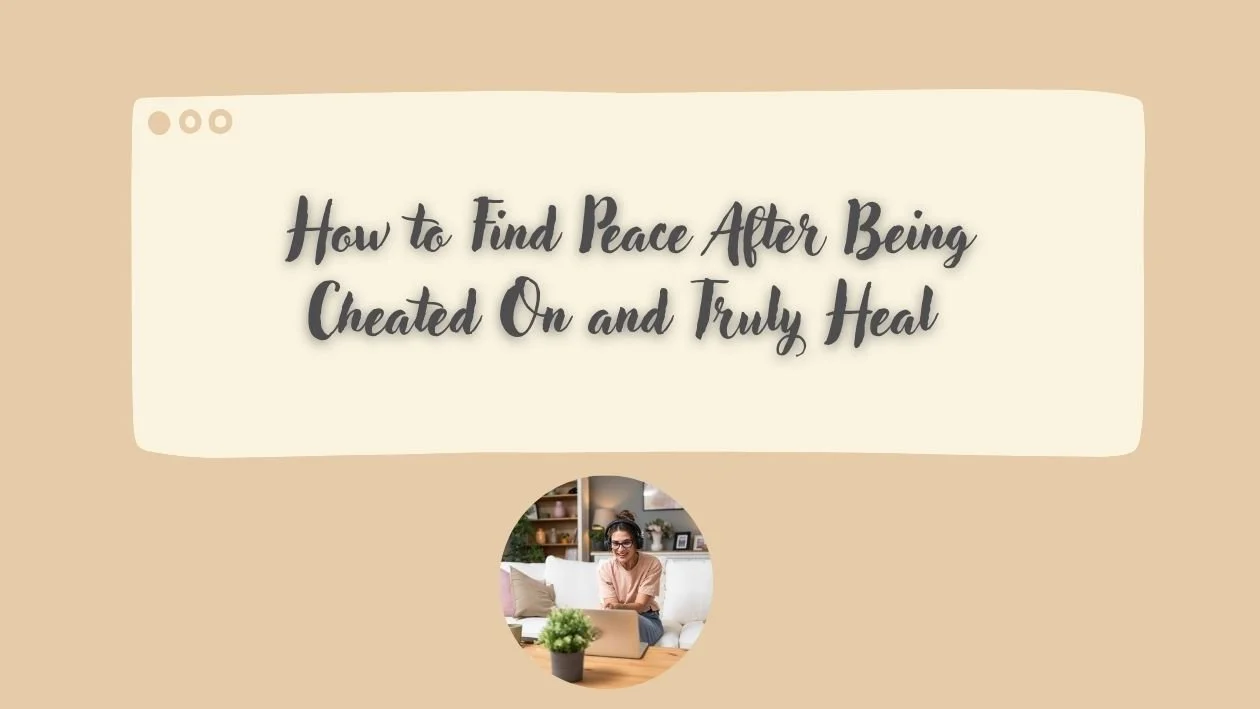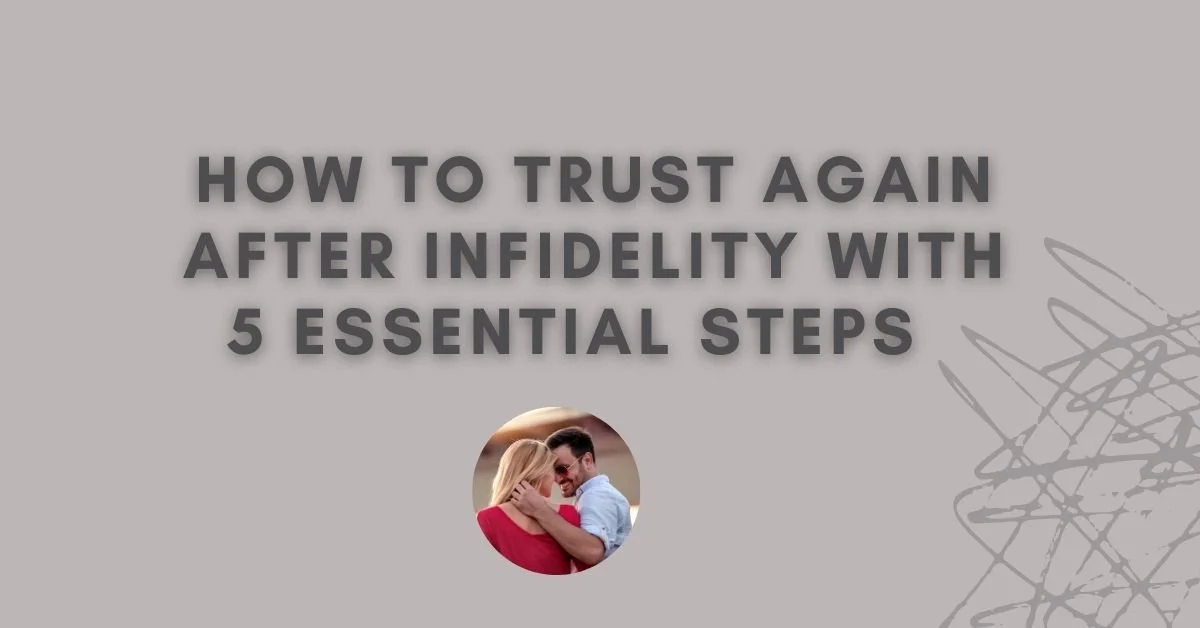5 Harsh Truths About Affair Recovery No One Wants to Hear
Affair recovery in a Christian marriage often challenges couples deeply. While each couple's healing journey differs, certain hurtful habits can significantly hinder trust rebuilding and marital bond restoration. This post examines five common destructive behaviors that many couples unknowingly adopt, potentially sabotaging their efforts to save their Christian marriage after infidelity.
Avoiding Communication: The Silent Killer of Trust
Couples often retreat into silence after an affair, creating emotional distance that further erodes trust. The pain and discomfort of confronting betrayal can lead to this detrimental habit.
In a Christian marriage, open and honest communication is essential for healing. Ephesians 4:25 reminds us, "Therefore, having put away falsehood, let each one of you speak the truth with his neighbor, for we are members one of another."
To break this hurtful habit:
Set aside dedicated time each day for open dialogue
Practice active listening without judgment
Share feelings and thoughts, even when uncomfortable
Seek guidance from Scripture on effective communication
Remember, rebuilding trust after infidelity requires consistent, honest communication. These difficult conversations initiate healing and restore intimacy.
Blaming Each Other: A Roadblock to Healing
High emotions naturally follow an affair. However, falling into a pattern of blame can severely hinder recovery. Blaming shifts focus from healing to hurting, creating a difficult-to-break cycle of negativity.
As Christians, we must practice forgiveness and understanding. Matthew 7:3 reminds us, "Why do you see the speck that is in your brother's eye, but do not notice the log that is in your own eye?"
To overcome the habit of blaming:
Practice empathy and try to understand your partner's perspective
Take responsibility for your own actions and feelings
Focus on solutions rather than past mistakes
Pray together for guidance and healing
By shifting from blame to understanding, couples create a supportive environment conducive to healing and rebuilding trust.
Refusing Professional Help: A Missed Opportunity for Growth
Many Christian couples hesitate to seek professional help, believing they should overcome challenges through faith alone. However, couple's therapy for infidelity can powerfully aid affair recovery, providing structured support and guidance.
Proverbs 15:22 tells us, "Without counsel plans fail, but with many advisers they succeed." A Christian couples therapist can offer valuable insights and strategies for rebuilding trust after infidelity, while honoring your faith and values.
Benefits of seeking professional help include:
Gaining new perspectives on your relationship dynamics
Learning effective communication and conflict resolution skills
Processing complex emotions in a safe, guided environment
Receiving support tailored to your Christian beliefs and principles
Remember, seeking help demonstrates courage towards healing and strengthening your Christian marriage.
Ignoring Spiritual Healing: Neglecting the Foundation of Faith
The turmoil following an affair can easily obscure the spiritual foundation of a Christian marriage. However, ignoring spiritual healing leaves a crucial aspect of recovery unaddressed.
Psalm 147:3 reminds us, "He heals the brokenhearted and binds up their wounds." Incorporating spiritual practices into your healing journey provides comfort, guidance, and renewed strength.
To prioritize spiritual healing:
Pray together regularly, even when it feels difficult
Study Scripture passages on forgiveness and restoration
Attend church services and small groups for support
Seek spiritual counseling from a trusted pastor or Christian mentor
Reconnecting with your faith provides the strength and grace needed to navigate the challenging path of affair recovery.
Holding onto Resentment: The Poison of Unforgiveness
Holding onto resentment poses one of the most insidious habits in affair recovery. While anger and hurt naturally respond to betrayal, allowing resentment to take root can prevent true healing and make rebuilding trust after infidelity nearly impossible.
As Christians, we must practice forgiveness. Colossians 3:13 instructs us, "Bear with each other and forgive one another if any of you has a grievance against someone. Forgive as the Lord forgave you."
To let go of resentment:
Acknowledge your feelings of hurt and anger
Practice forgiveness as an ongoing process, not a one-time event
Focus on the present and future of your relationship, rather than dwelling on past betrayals
Seek God's help in releasing negative emotions and embracing forgiveness
Remember, forgiveness doesn't mean forgetting or excusing the affair. It releases the burden of resentment and opens the door to healing and rebuilding trust.
There’s Hope in Affair Recovery
While these hurtful habits pose significant challenges to affair recovery, recognizing and addressing them marks a crucial step towards healing. With commitment, faith, and professional guidance, couples can overcome these obstacles and rebuild a stronger, more intimate Christian marriage.
If you struggle with the aftermath of infidelity in your Christian marriage, know that you're not alone. I specialize in helping faith-filled married Christian couples like you, restore trust after betrayal trauma and to strengthen your marital connection. My approach combines professional expertise with a deep understanding of Christian principles, providing a unique, safe, and effective path to healing.
Don't let these hurtful habits derail your recovery journey. Take the first step towards transforming your marriage today. Reach out and let me show you how I can can guide you through rebuilding trust and experiencing true intimacy in your Christian marriage.
( Disclaimer: I am licensed to provide therapy and counseling services in the States of Alabama and Tennessee. This blog post does not replace professional help from a mental health provider and is meant for informational and educational purposes only. The information on this blog does not create a therapist-client relationship and I will not be held liable for any damages or losses caused by using the tips and actions shared on this blog. If your situation calls for medical attention or therapeutic intervention, seek the advice of a Licensed Physician or licensed mental health providers in good standing in your local area. Call 911 or go to your nearest Emergency Room if you are in a life threatening or emergent situation. Also, this information is not for those in abusive situations or dealing with someone engaged in criminal acts. If that has happened in your situation, call the authorities and create a safety and exit plan. You don’t have to stay in an unsafe or dangerous situation)











